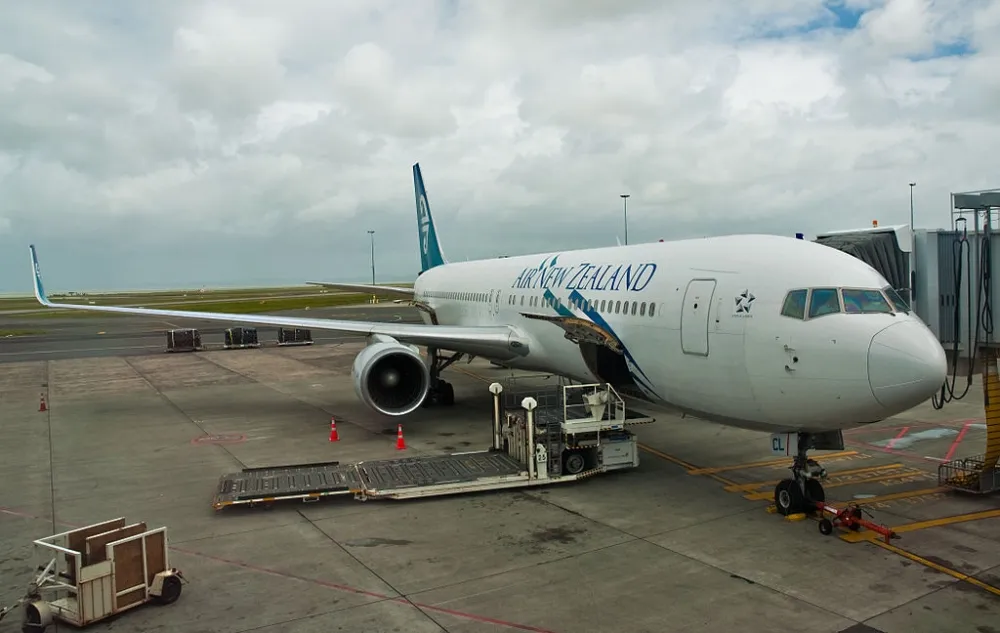
Last flight for Air New Zealand's Boeing 767s
Mar 30, 2017

Air New Zealand's Boeing 767 fleet marked the end of an era with its final flights, concluding years of reliable service. The aircraft, known for their versatility and comfort, played a significant role in the airline's operations, connecting various domestic and international destinations. As the last planes completed their journeys, passengers and crew reflected on the memories and experiences shared aboard the 767s. The retirement of these aircraft symbolizes a shift towards newer, more fuel-efficient models, while also honoring the legacy of the Boeing 767, which has been a beloved part of Air New Zealand's history for decades.
Air New Zealand recently bid farewell to its iconic Boeing 767 fleet, marking a significant moment in aviation history. The retirement of these aircraft represents not just the end of a chapter for the airline but also a shift towards more modern, fuel-efficient aircraft that align with contemporary environmental standards. The Boeing 767 was known for its reliability and versatility, serving various routes for Air New Zealand over the years. However, as the airline moves forward, it embraces a new era of aviation.
The Legacy of the Boeing 767
The Boeing 767 has been a staple in Air New Zealand's fleet for decades. Introduced in the early 1980s, the 767 was a game-changer in the world of commercial aviation. It offered a wide-body design that allowed for increased passenger capacity while maintaining operational efficiency. This aircraft type was especially popular on long-haul routes, providing comfort and reliability for travelers.
Reasons for Retirement
With advancements in technology and a growing emphasis on sustainability, Air New Zealand's decision to retire the Boeing 767s is driven by several factors:
- Fuel Efficiency: Newer aircraft models, such as the Boeing 787 Dreamliner, offer significantly better fuel efficiency, thus reducing operational costs and environmental impact.
- Passenger Experience: Modern aircraft come equipped with the latest in comfort and entertainment technology, enhancing the overall flying experience for passengers.
- Maintenance Costs: Older aircraft typically incur higher maintenance costs, which can impact profitability in a competitive market.
Final Flights and Farewell Events
The last flights of Air New Zealand's Boeing 767s were celebrated with special events and promotions. Enthusiasts and loyal customers had a chance to book a seat on the final journeys, creating a nostalgic atmosphere as passengers shared their fond memories of flying on the 767. The airline organized farewell events at various airports, highlighting the aircraft's contribution to the airline's history.
Chart: Boeing 767 Retirement Timeline
| Year | Event |
|---|---|
| 1982 | Boeing 767 enters service with Air New Zealand |
| 2000 | Expanded fleet to accommodate growing demand |
| 2020 | Announcement of retirement plan for Boeing 767 |
| 2023 | Last flight of Boeing 767 |
Impact on Air New Zealand’s Fleet Strategy
The retirement of the Boeing 767 is part of a broader strategy for Air New Zealand to modernize its fleet. The airline is focusing on enhancing operational efficiency and reducing its carbon footprint. By introducing newer aircraft, Air New Zealand aims to provide a superior flying experience while meeting international standards for sustainability.
Future Aircraft: A Look Ahead
As Air New Zealand moves on from the Boeing 767, the airline is investing in newer models like the Boeing 787 Dreamliner and the Airbus A321neo. These aircraft are designed to be more environmentally friendly, with lower emissions and noise levels. The transition is not just about replacing old aircraft; it’s about redefining the passenger experience and reinforcing the airline's commitment to sustainability.
Conclusion
The farewell of the Boeing 767s marks an important milestone for Air New Zealand. While the aircraft will be missed by many who grew fond of its unique charm and reliability, the future looks promising as the airline embraces modern technology and sustainability. Air New Zealand's commitment to providing a better flying experience through its evolving fleet is a positive step forward in the aviation industry.
As the airline continues to innovate, passengers can look forward to enhanced travel experiences that combine comfort, efficiency, and environmental responsibility. The legacy of the Boeing 767 will always be a part of Air New Zealand's history, serving as a reminder of the airline's journey and its dedication to excellence in aviation.
Related Articles

Explore Thailand: The Best Islands to Visit for Paradise, Adventure, and Relaxation

The Ultimate Guide to the Best Islands in Thailand for Your Next Getaway

Do babies need passports? How to get a passport for a newborn

How to get a U.S. passport fast: here’s how to expedite the process

What is Mobile Passport Control: 5 reasons why you should use it

SENTRI vs. Global Entry: A detailed guide

Do you need a passport to go to the Bahamas? Let’s find out

Do you need a passport to go to Mexico? A detailed guide

Do you need a passport to go to Canada? We got the answer

Do You Need a Passport for a Cruise: An Essential Travel Guide

Booster Seat Requirements: All the Rules to Follow in Your Rental Car

What Are the World’s Most Powerful Passports, and How Does Yours Rank?

How to Take a Passport Photo at Home: A Helpful Guide

You've got to have heart! Southwest's new livery

Your opinion: Should water be free on low cost carriers?

Young women bolder than guys as solo travellers
